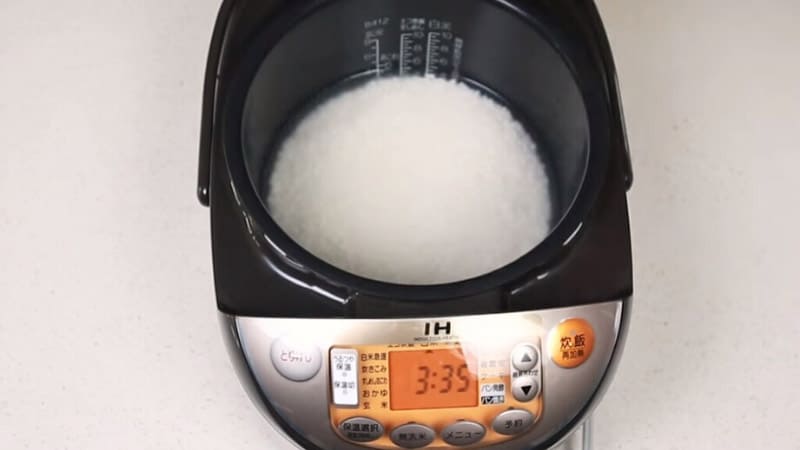
When we claim that Japanese rice cookers are the finest, we mean it. This is a Japanese business that has already produced a fantastic selection of rice cookers to suit everyone’s needs, regardless of their cooking scale or style. Japanese rice cooker issues, on the other hand, irritate users, but we’re here to assist!
- Rice that isn’t soft
When you invest in sophisticated rice cookers, the last thing you want to do is chew on hard rice. However, it’s usually a problem on your end. In this part, we’ll discuss the various causes of hard rice as well as possible remedies, such as;
- The primary cause is a lack of available water. This is because too little water causes the rice to become hard. As a result, you’ll need to turn off the machine, add half a cup of water, and re-cook the rice.
- If you don’t stir the rice well enough, it might get firm. As a result, every time you add water and rice to the rice cooker, make sure the rice and water are thoroughly mixed.
- The third cause for rice is the heating plate or sensor interference. This means you may need to remove water and rice from the cooker and examine if there’s something on the center sensor. Remove and add rice and water if there is anything. We are sure it will perfectly cook the rice.
- Soft Rice Extra
They don’t want to eat extra soft rice if you can’t eat hard and crispy rice because it is too fat. There are many explanations for this unusually soft rice and the possible treatments below can be checked;
- To get started, it will produce extra soft rice if you add too much water. So, when cooking rice, you have to pick the right amount of water.
- The other way is to examine the menu. This is because you might not be able to pick the right menu if you are new to the Japanese rice cooker. Just look at the handbook and make sure you choose the right menu, as the rice is produced. You can read more on cozyhousetoday.
- Rice that has been charred
Although no one wants the rice to burn, it does happen. So, if your rice in the Japanese rice cooker continues burning, have a look at the following points:
- To begin with, if you use too little water (for example, half a cup in one kilogram of rice), the rice will burn. Keep in mind that the amount of water used in the rice cooking process is critical.
- Unwashed rice might be the second cause of rice burn. Before cooking rice in a rice cooker, it should always be cleaned and washed. Furthermore, even if you purchase rice that has been cleaned and washed, we recommend that you rinse the rice.
